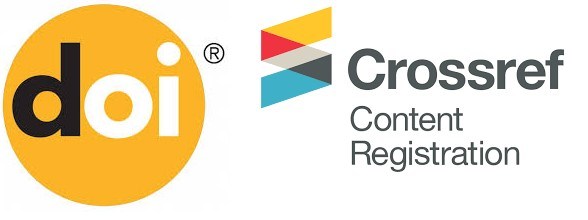Learning obstacles in integers: Analysis of the exercise of 7th and 8th grade students.
Keywords:
Epistemological obstacles; Didactic obstacles; Integer numbers; Education, Epistemological obstacles, Didactic obstacles, Integer numbers, EducationAbstract
The teaching of mathematics is a complex process; the knowledge acquired by students can vary depending on the representations used or the didactic decisions. Just as learning can be facilitated, it can also be hindered. The teacher must appropriately address the teaching-learning process that takes place in the classroom and anticipate the difficulties that may arise. For this, it is necessary to understand the causes and characteristics of the obstacles that arise in students when learning new knowledge. The objective of the study is to identify and classify epistemological and didactic obstacles that arise in the learning of integers during basic education. For the collection of information, focus groups were conducted with 7th and 8th-grade students. The results reveal epistemological and didactic obstacles in the students' knowledge, particularly in the algorithms of subtraction and multiplication with integers.
Downloads
References
Arcavi, A., & Bruckheimer, M. (1981). How Shall We Teach the Multiplication of Negative Numbers? Mathematics in School, 10(5), 31-33. http://www.jstor.org/stable/30214312
Bachelard, G. (1993). La formación del espíritu científico. Siglo XXI.
Brousseau, G. (1983). Los obstáculos epistemológicos y los problemas en matemáticas. Recherches en Didactique des Mathématiques, 4(2), 165-198.
Brousseau, G. (2007). Iniciación al estudio de la teoría de las situaciones didácticas. Libros del Zorzal.
Bruner, J. S. (1969). Hacia una teoría de la instrucción. Unión Tipográfica Editorial HispanoAmericana.
Catalán, D., Pérez, B., Prieto, C., & Rupin, P. (2019). Texto del estudiante. 8º Básico. Editorial SM. Obtenido de
Cid, E. (2016). Obstáculos epistemológicos en la enseñanza de los números negativos [Tesis doctoral, Universidad de Zaragoza]. Repositorio de la Universidad de Zaragoza. https://zaguan.unizar.es/record/112529/files/TESIS-2022-085.pdf
Cid, E. (2022). La introducción escolar de los números enteros en un entorno algebraico: razones y principios que la sustentan. En R. Martinez, y M. Ruiz (Eds.), Trabajo colaborativo entre profesores de matemática e investigadores en Didáctica de la Matemática. Desafíos y problematizaciones en la adaptación y difusión de una propuesta para la enseñanza de los números enteros (pp. 105-167). EDUCO. http://170.210.81.141:8080/handle/uncomaid/16638
Crowley y Dunn (1985). On multiplying negative numbers. Mathematics teacher, 78(4), 252-256.
Glaeser, G. (1983). Une science naissante: la didactique expérimentale des mathématiques. Séminaire de Philosophie et Mathématiques, (14), 1-12.
Janvier, C. (1983). The understanding of directed numbers. Proceedings of the 15th Annual Conference of PME-NA, 295-300, Montreal.
Muñoz Cornejo, P. (2019). Análisis de números enteros en textos escolares ministeriales de séptimo y octavo año básico: 2009-2018 [Tesis de magister, Universidad Alberto Hurtado]. Repositorio de la Universidad Alberto Hurtado. https://repositorio.uahurtado.cl/handle/11242/25951
Ministerio de Educación. (2016a). Bases Curriculares Séptimo Básico a Segundo Medio. Gobierno de Chile.
Ministerio de Educación. (2016b). Programa de Estudio Séptimo Básico. Gobierno de Chile.
Ministerio de Educación. (2016c). Programa de Estudio Octavo Básico. Gobierno de Chile.
Orrantia, J. (2006). Dificultades en el aprendizaje de las matemáticas: una perspectiva evolutiva. Revista Psicopedagogía, 23(71), 158-180. https://www.revistapsicopedagogia.com.br/detalhes/401/dificultades-en-el-aprendizaje-de-las-matematicas--una-perspectiva-evolutiva
Quijada, F., Manosalva, C., Ramírez, M., & Romero, D. (2020). Texto del Estudiante de 7º Básico. Editorial SM. Obtenido de https://www.curriculumnacional.cl/estudiante/621/articles-145593_recurso_pdf.pdf
Torres Jeldes, C. V., y Caroca Toro, M. V. (2021). Texto Escolar del Estudiante de 8° Básico. Editorial Santillana.
Vidal, R., y Barra, M. (2019). Un modelo para caracterizar la justificación de reglas y algoritmos del ámbito numérico–algebraico en libros de texto. Matemáticas, Educación y Sociedad, 2(2), 33-49.
Zapatera, A. (2021). Obstáculos epistemológicos en el aprendizaje de los números enteros. En A. M. Rosas Mendoza (Ed.), Avances en matemáticas educativas teorías diversas no. 8 (pp. 121-135). Editorial Lectorum.
Downloads
Published
How to Cite
Issue
Section
License
Copyright (c) 2024 Chilean Journal of Mathematics Education

This work is licensed under a Creative Commons Attribution 4.0 International License.











